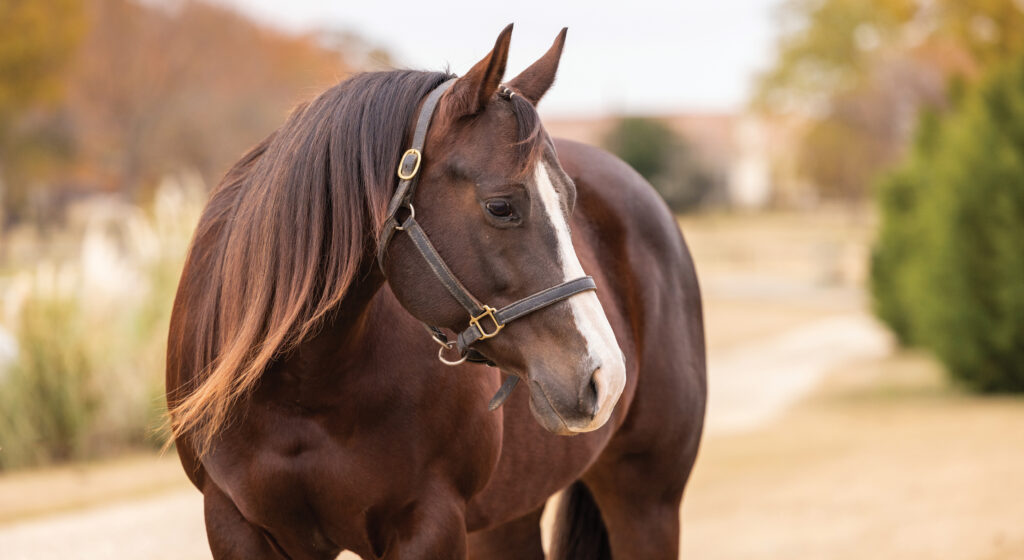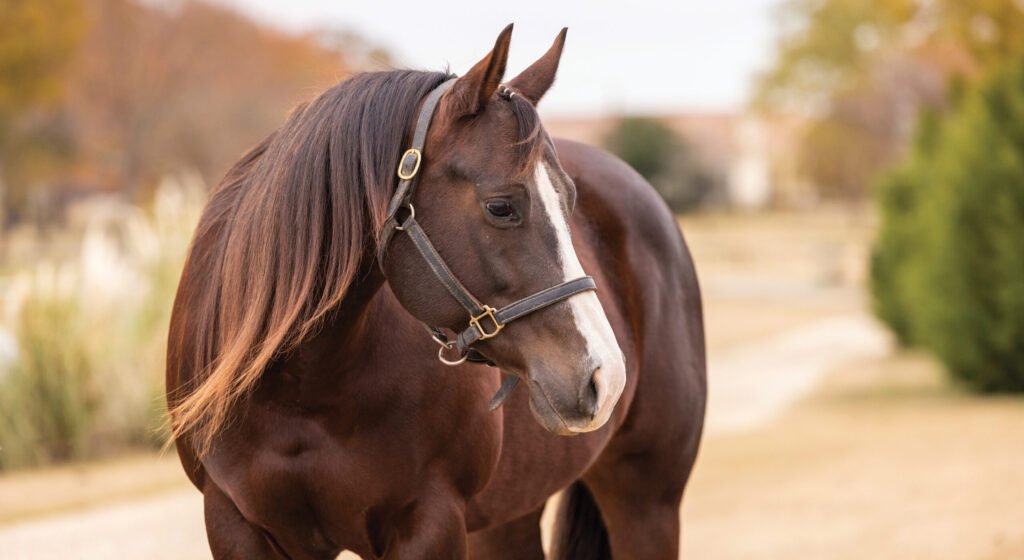The six-panel test is a tool used to evaluate the genetic predispositions of horses, aiming to identify if a horse carries certain hereditary diseases and traits.
Although primarily conducted for American Quarter Horses, some genetic diseases detected by the six-panel test are found in other breeds. For AQHA breeding stock, the test results are necessary for a horse’s record and registration certificate.

Glycogen Branching Enzyme Deficiency Disorder (GBED)
What is it? GBED is caused by a mutation in the GBE gene, affecting the glycogen branching enzyme. This leads to an inability to store or mobilize glycogen in certain organs, resulting in muscle weakness and potentially death.
For a horse to be affected, it must inherit two copies of the mutated gene, one from each parent.
Is it manageable? Unfortunately, horses born with GBED will not survive, making it crucial to consider not breeding carrier horses.
Hereditary Equine Regional Dermal Asthenia Disorder (HERDA)
What is it? HERDA is caused by a mutation in the PPIB gene, leading to skin fragility and scarring due to collagen malformation.
Similar to GBED, a horse must inherit two copies of the mutated gene to be affected.
Is it manageable? While there is no cure, HERDA can be managed with care.
following sentence:
The cat was sleeping peacefully on the windowsill.
The peaceful cat was sleeping on the windowsill.

